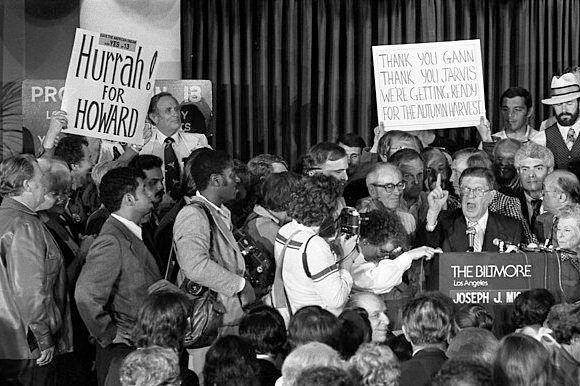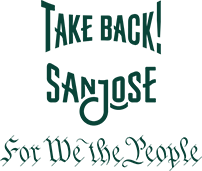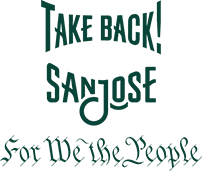
Regional housing tax. Parks tax. Measure E extension. Prop 5. SJ Unified parcel tax. The list could go on, but the threatening tide keeps rising: politicos are coming at Silicon Valley taxpayers with a tidal wave of new taxes–surging over Silicon Valley’s already super high tax rates. But analysts suggest that residents may have had enough of high taxes and crummy services, and a new tax rebellion may be bubbling. Nicole Nixon explains in Capradio.
Competing measures headed for the November ballot could drastically change California’s tax landscape.
“California’s overtaxed. You could give them all the money in the world and it still would not be enough,” said Jon Coupal, current President of the Howard Jarvis Taxpayers Association. The group was created in the aftermath of Prop 13’s passage to defend it.
Coupal pointed to California’s budget situation — which fell from a $100 billion surplus in 2022 to a deficit as high as $73 billion this year — as evidence that state lawmakers are spending too much.
He believes the conditions are ripe for another tax revolt, citing $32 billion in pandemic fraud at the state’s unemployment agency, a ballooning price tag for the high speed rail project, and the narrow passage of Newsom’s Proposition 1, a $6.4 billion bond to fund housing and behavioral health treatment.
“I don’t think the average Californian is anti-government at all,” Coupal said. But he added that residents “expect a level of service higher than the average American” and don’t want to see waste.
Meanwhile, the cost of housing, gas and groceries keep climbing. Coupal said it’s reminiscent of the conditions preceding Prop 13. “You have political elites who appear to be very disconnected from the concerns of ordinary Californians, particularly working poor and middle class,” he said.
State lawmakers have already approved tax-friendly ballot questions to go before voters in November.
ACA 1 (Prop 5) would make it easier for local governments to raise certain special taxes by lowering the required voter approval threshold from 67% to 55%.
ACA 13 would subvert any future attempts to raise voter thresholds on ballot measures (including those dealing with taxes) by requiring them to play by their own rules. For example, if a measure seeks to impose a 60% voter approval threshold, that measure would also have to be approved by 60% of voters.
Californians are divided on taxes, according to a February PPIC survey. About half — 48% of adults — say they prefer to pay higher taxes in return for more government services. The other half — 49% of adults — prefer lower taxes and fewer services.
Still, an overwhelming 91% believe the state government wastes “a lot” or “some” money. Voters had similar sentiments leading up to Prop 13’s passage in the ‘70s, Baldasarre said.
“As much as things have changed since 1978 in California — demographically, politically, socially, economically — there’s such an undercurrent all the time of concerns about spending and taxes,” he said.
In other words, he said, when it comes to taxes, the more things change, the more they stay the same.
Read the whole thing here.
Follow Opportunity Now on Twitter @svopportunity

